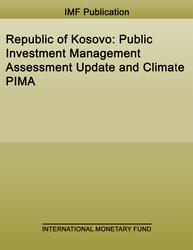
Romania: A Tax Mix to Achieve Fiscal Sustainability and Fairness
Romania’s medium-term fiscal framework calls for the fiscal deficit to decline gradually from about 8 percent of GDP in 2024 to 7 percent in 2025 and 3 percent (or less) by 2031.
READ MORE...
Volume/Issue:
Volume 2025
Issue 023
Publication date: June 2025
ISBN: 9798229012249
$5.00
Add to Cart by clicking price of the language and format you'd like to purchase
Available Languages and Formats
| English |
Prices in red indicate formats that are not yet available but are forthcoming.
Topics covered in this book
This title contains information about the following subjects.
Click on a subject if you would like to see other titles with the same subjects.
Taxation - General , personal income tax , value-added tax , excise tax , property tax , corporate income tax , arbitrage opportunity , microenterprise tax regime , anti-abuse framework , Tax allowances , Tax wedge
Also of interest
Summary
Romania’s medium-term fiscal framework calls for the fiscal deficit to decline gradually from about 8 percent of GDP in 2024 to 7 percent in 2025 and 3 percent (or less) by 2031. With limited scope for expenditure consolidation ‒ given the low expenditure-to-GDP ratio ‒ revenue mobilization is imperative. IMF technical assistance proposes a tax reform package aimed at mobilizing revenues, while improving work incentives, remaining attractive to capital investments, and closing loopholes for abusive tax planning. The key recommendations shift the fiscal burden away from labor taxation (including social insurance contributions) toward taxes on consumption and, to a lesser extent, on capital. The detailed recommendations, if fully implemented, can generate revenues of at least 1.2 percent of GDP in 2025.



